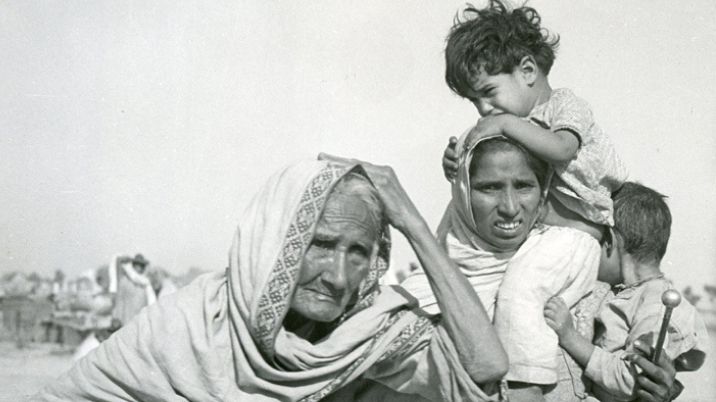I’m not saying they’re not going to get their hair mussed

The WSJ editorial page everybody:
If Indians and Pakistanis Can Relocate, Why Can’t Gazans?
Population transfers aren’t a Trump innovation. There are plenty of examples from the 20th century.
There sure are.
The specific example adduced by the savants of the nation’s largest newspaper — the partition of India — triggered probably the worst refugee crisis the world has ever seen (yet). with something like 15 million people, most of them desperately poor, suddenly and violently displaced from their ancestral homes. This resulted in somewhere between several hundred thousand and two million immediate deaths, and incalculable damage to the survivors.
But at least India and Pakistan now get along great, or at least a lot of people are saying.
As to “relocation of populations” in general, let’s return to the classics:
In our time, political speech and writing are largely the defence of the indefensible. Things like the continuance of British rule in India, the Russian purges and deportations, the dropping of the atom bombs on Japan, can indeed be defended, but only by arguments which are too brutal for most people to face, and which do not square with the professed aims of political parties. Thus political language has to consist largely of euphemism, question-begging and sheer cloudy vagueness. Defenceless villages are bombarded from the air, the inhabitants driven out into the countryside, the cattle machine-gunned, the huts set on fire with incendiary bullets: this is called pacification. Millions of peasants are robbed of their farms and sent trudging along the roads with no more than they can carry: this is called transfer of population or rectification of frontiers. People are imprisoned for years without trial, or shot in the back of the neck or sent to die of scurvy in Arctic lumber camps: this is called elimination of unreliable elements. Such phraseology is needed if one wants to name things without calling up mental pictures of them.
The irony here is that “ethnic cleansing” itself was originally meant to be just this sort of thought-euthanizing euphemism. And there’s a long history of this kind of thing: the man who invented the phrase “concentration camp” was no doubt trying to call up some sort of innocuous picture of a semi-involuntary bucolic vacation.
I think it’s safe to say that the evacuation of Gaza will require special handling — especially given that, in the new information age, there can be very few bearers of secrets.


